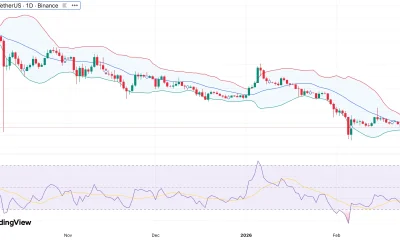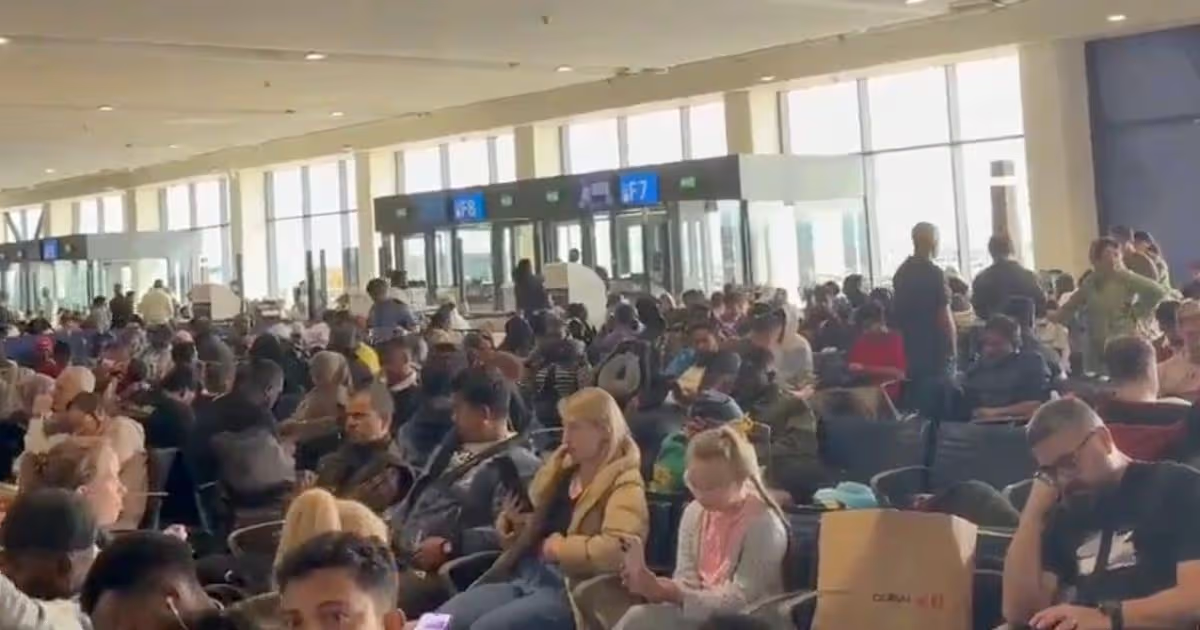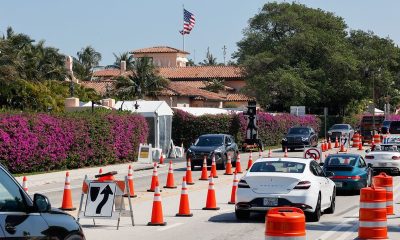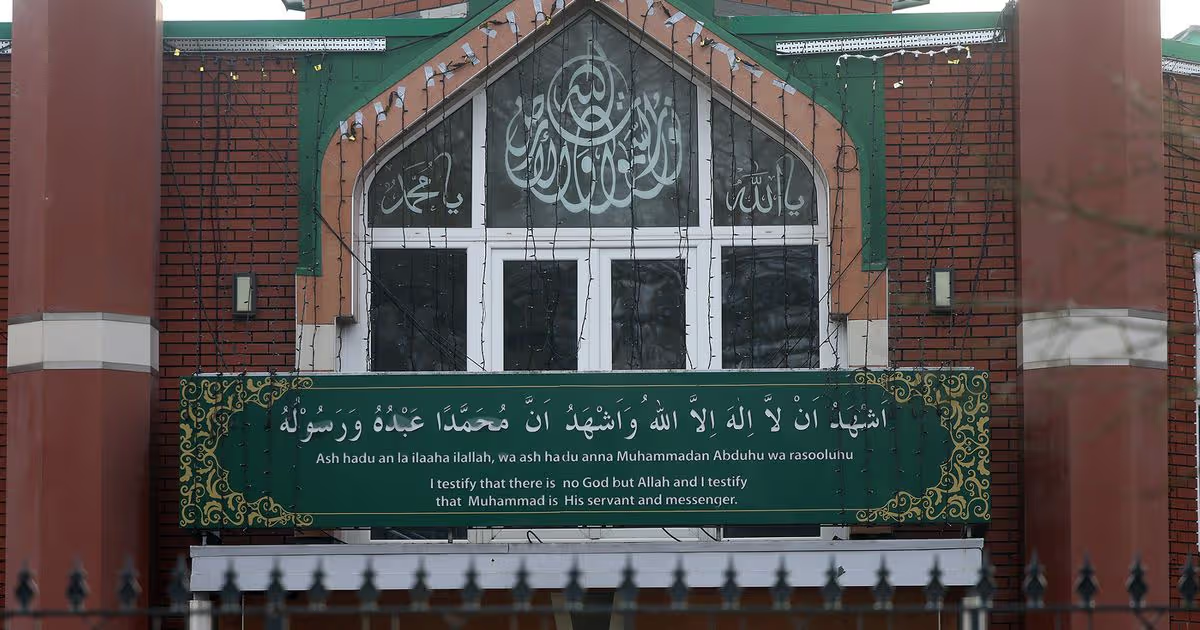Fashion
American Rust Costume Guide from the Series

The American Rust is one of the exceptional TV series of today’s era within the crime fictional genre. Inspired by Philipp Meyer’s debut novel, the series features an iconic cast of characters trapped within a decaying industrial landscape, full of economic hardships leading to a life of severe crime and moral choices.
From raw emotions to gritty style, the series offers a rich storytelling experience to the fans, where each character has their own flaws and background, giving a relatable reaction to fans. Similarly, each character’s style ideally reflects their class and struggles, adding profound realism to their identity that inspires pop-culture fans to dress like them to express their own individuality and character persona with confidence.
The Visual Style of American Rust
Despite not being a western genre series, this show heavily takes inspiration from bold western aesthetics, leaving a strong impression throughout the series, from the small town setting to the cast’s fashion, every character’s style reflects muted colors, rugged and worn textures, with various layers of clothing that feel less costumed and more practical and raw styled.
Main Character Costume Breakdown
Character 1: Jeff Daniels


Starting with the series’ main lead character, Del Harris, portrayed by Jeff Daniel, investigating the murder of Pete Novick, Del’s story is all about being trapped in a struggle against love for his ex, Grace Poe, and a strong sense of duty as a police chief. His character showcases good and strong morals but also relatable flaws, that him far too complex.
Closely, his style also reflected his personality, featuring understated pieces of clothing that described his persona. He mainly wore timeless garments comprising natural colors, especially his signature classic blue-collar attire, while his signature clothing consisted of plaid shirts and sturdy chino or trousers with rugged shoes, and the Del Harris American Rust Jacket served as the centerpiece of his costume’s identity.
Character 2: Virgil Poe


Played by Mark Pellegrino, compared to Del, Virgil Poe’s character is all about reflecting authority through power and control. He’s the estranged husband of Grace Poe and father of Billy Poe, who craves creating conflicts by intimidating people and interfering with Grace’s relationships, making him an overshadowing villain to the Poe family’s stability.
Likewise, his deadbeat and unapologetically alive attitude represents his flamboyant yet low-rent style, featuring Virgil Poe Brown Shearling Jacket in rugged brown colors with flashy t-shirts or flannels, with denim jeans and boots, ideally describing his self-preserving personality.
Character 3: Grace Poe


Portrayed by Maura Tierney, Grace’s arc revolves around desperate efforts to save her son Billy from a wrongful murder conviction. Often taking countermeasures beyond moral boundaries to ensure his safety, reflecting a conflicting balance of motherhood and financial independence.
Similarly, her style resonates with her grounded identity, featuring practical clothing which subtly showcases her elegance, with Grace Poe Suede Leather Jacket being the centerpiece of her signature outfit, usually paired with muted blouses, jeans, and functional boots reflecting her strong personality and role in the story.
Key Clothing Items & Pieces
Throughout the series, every character styles himself in practical layers, in distress and worn textures and finishes, showcasing the dystopian environment.
- Jackets & Outerwear: From main characters to side ones, most of the cast members style themselves in rugged, practical, worn-in leather or denim jackets, vests, coats, and such outerwear.
- Shirts & Tops: For shirts and tops, both the male and female characters often wore classic plaid patterns and muted-toned shirts and blouses inspired by workwear.
- Bottoms: Expressing the low-life aesthetics, the durable denim jeans, trousers, and skirts were one of the key pieces of clothing in the series.
- Footwear: For a TV show, boots, the character for a mix of functional and worn leather shoes, describing everyday rugged wear.
- Accessories: When it comes to character accessories, male characters were often shown wearing belts, hats, scarves, while female characters also incorporated subtle jewelry that enhances authenticity.
How to Recreate American Rust Style in Real Life
As the drama focuses on showcasing timeless rugged pieces, believe it or not, they’re quite easy to incorporate into everyday wear. Likewise, the key lies in prioritizing proper fit over stylishness for a natural, casual appearance. Use layering techniques inspired by the show by mix and matching classic shirts with leather or denim jackets, and be sure to wear denim jeans and leather boots to recreate the rustic charm of the series.
The Story Behind the Costumes
From every nook and cranny the costume designs for the american rust of authenticity and attention to detail, narrating a story of economic devastation, lost dreams, and rugged resilience in a small town of america, where clothing reflects difficulty, class, and working lives of people in the Rust Belt region who have been largely abandoned by well-paying jobs, symbolizing grit, desperation, and a subtle lack of hope.
Why Fans Love American Rust Fashion
Simply said, fans like recreating TV series outfits, often to appreciate TV series fashion, especially for those dramas, where character style influences the world, and this series does it very well. The show ideally embodies a sense of authenticity of the blue-collar and post-industrial world, adding a strong sense of realism, portraying the character’s struggle where political power has lost its meaning.
Conclusion
Any adaptation that faithfully follows the source materials is not only loved by the audience but also admired by the fans, just like how the cast wears rugged fashion in post-industrial world, subtly telling a story and realism transforming them into less of costume and more practical ensemble, inspiring enthusiasts to recreate their own American Rust style, whether by following exact look or by recreating an inspired everyday outfit, regardless, it can’t be denied that every piece of clothing tells a story, adding a depth of realism.
Fashion
On the Scene at Dolce & Gabbana Fall 2026 with Madonna Front Row: Black Lace, Statement Outerwear, and Identity as the Ultimate Luxury

Dolce & Gabbana presented a Fall 2026 collection soundtracked by Madonna—“Take a Bow,” “I’ll Remember,” and more—while Madonna sat front row beside Anna Wintour.


Frenzied energy filled the room as models turned mid-walk to reveal jackets worn backwards, proving the front can be the back and reinforcing the idea of looking good coming and going.
Rooted in the belief that identity is the ultimate luxury, the collection centered on presence rather than nostalgia. Sicily emerged as emotion, black as strength, lace as intimacy, and tailoring as authority. Femininity and masculinity remained in constant dialogue, with the body affirmed rather than hidden. The house codes—sensuality, devotion, glamour, and craftsmanship—were merged into an aesthetic instantly recognizable for its authenticity and passion, underscoring a story of remaining true to oneself.
Sheer lace dresses, corset tops, and sheer pencil skirts were layered beneath faux fur coats and dramatic outerwear. Plum blazers were styled with knee-high socks, while pinstripe suits with thicker lines nodded to menswear influences. Knits appeared sheer, lingerie was worn beneath substantial coats, and chevron outerwear with fur detailing reinforced the collection’s emphasis on statement coats. Outerwear ultimately emerged as the defining element of the show.
A restrained palette of black, white, and gray grounded the collection, executed in velvet, wool, and cotton. Accessories included fur handbags, knit satchels, tapestry bags, and croc handbags in black and burgundy, styled with thigh-high socks to complete the looks.
Photo credit: Courtesy of Dolce & Gabbana
Fashion
Show Review: GCDS Fall 2026 + Olandria, the Clermont Twins, and More!

GCDS staged a playful yet provocative runway moment, with models emerging from a towering shopping bag installation as “Teenage Dirtbag” played through the venue. The collection leaned heavily into a retro ’90s mood, pairing lingerie codes with daywear silhouettes and delivering an air of insouciance throughout.
“For us, ‘What’s in My Bag?’ is not just about a meme,” said founder and creative director Giuliano Calza. “It’s about opening the bag that holds ten years of my world, and showing what’s inside: the culture, the humor, the established silhouettes and iconic designs that have made GCDS what it is.” Revisiting a decade of evolution led Calza to explore the idea of “emotional baggage” as the show’s deeper narrative thread: not what you carry, but what you’ve collected along the way.

On the runway, that reflection translated into a retro ’90s mood grounded in lingerie codes and body-conscious tailoring. Peplum tops were styled with fitted pencil skirts and coordinated sets, while sheer lace teddies and nightwear-inspired pieces were reworked for daytime. Skin-tight dresses with visible bras, corsets paired with leather pants, and flounced black LBDs finished with ruffle hems reinforced the interplay between intimacy and public display. A sheer sequin maxi layered over a thong marked one of the collection’s boldest statements.

Snakeskin emerged as a key motif, appearing on bombers, pants, and a backless gown. Sequins were styled with bras for day, and metallic tops were paired with snake-print trousers. Menswear echoed the theme with snake-print pants and shorts worn under oversized sweaters and structured tops.

The color palette moved between leopard and polka dot prints, neon yellow, hot pink, and pops of red offset against silver sequins. Lace trims and sheer hosiery added texture, while accessories amplified the playful tone: teddy bear bags, cube bags, lucite platform heels, over-the-knee flat boots, lace pantyhose, and signature heels shaped with open mouths.

Front row guests included Olandria, Anna Dello Russo, Emilia Mernes, and the Clermont Twins, who took in the high-energy presentation from their seats as the models closed out the show in a unified, statement-making finale.
See more pix from the front row below:










Photo Credit: Courtesy of GCDS / Fashion Bomb Daily
Fashion
Weekend Open Thread: Iris Top

This post may contain affiliate links and Corporette® may earn commissions for purchases made through links in this post. As an Amazon Associate, I earn from qualifying purchases.
Something on your mind? Chat about it here.
If you’re looking for a cute going out top, this Reformation top may be up your alley.
I like that it’s a bit edgy, but mostly still covered up — and it’s affordable, huzzah.
Reformation has several colors in sizes XS-XL, but you can also find it at Nordstrom (white and light blue), Anthropologie (cream and navy) and elsewhere. It’s $98.
Sales of note for 2/24:
Fashion
PARIA Running T-Shirt and Shorts Collection

Break away from the pack with the PARIA Running T-Shirt and Shorts Collection, where elite technical performance meets defiant streetwear attitude. This isn’t your standard, muted gym wear; PARIA is built for runners who want to stand out on the road, the track, or the trail. Featuring lightweight, moisture-wicking fabrics and finished with our signature “Bad at Sports” irony and bold gradient artwork, each piece is engineered to keep you cool while looking undeniably sharp. Whether you’re chasing a PB or just hitting the pavement for a coffee run, PARIA delivers the perfect blend of breathability and grit.

PARIA Leopard Print Technical Running T-Shirt – Shop Now
Animal Print Tech Running Shorts – Shop Now
Bad At Sports Running Club Cropped Tee – Shop Now
PARIA Skull Print Technical Long Sleeve Running T-Shirt – Shop Now
PARIA Leopard Print Technical Long Sleeve Running T-Shirt – Shop Now
For any questions/feedback regarding the above mentioned products/brands,
please do contact us anytime by clicking here
Fashion
Colorful Swimwear & Printed Coverups for Spring Travel


Eres Bikini, Irene Neurwirth Earrings, Celine Sunglasses (similar here)
After another round of snow in the Northeast, and even Charleston seeing colder days, spring trips somewhere warm are officially on the radar. This season’s swimwear is defined by saturated color and graphic print. Teal paired with violet. Red with pink. Stripes mixed with solids. Pieces don’t have to match perfectly. Slightly off combinations make the trip feel more playful.
Matteau Bikini, Polo Ralph Lauren Hat, Dior Sunglasses | Eres Bikini Top & Bottom, Irene Neurwirth Earrings, Cesta Collective Sarong, Celine Sunglasses (similar here)
Beyond the bikini, the supporting pieces matter just as much: printed pareos, structured kaftans, rose-toned knits, fringed wraps, or embellished peak-a-boo pants. A strong kaftan or tunic is the easiest thing to throw on after a swim, polished enough for lunch, relaxed enough for walking back through town. Lightweight trousers in breathable cotton work just as well, especially in easy silhouettes with elastic waists and wider legs that move comfortably in the heat.
The focus is simple: swim that stands out, layers that carry you through the day, and color that feels right against sun and water.
Fashion
Kudd.ly Hoodie Blanket Deal Up to 67% Off

The Kudd.ly Hoodie Blanket deal is officially here, offering a massive 67% discount on the internet’s favorite loungewear. Combining the oversized fit of a hoodie with the plush warmth of a luxury blanket, Kudd.ly is the ultimate companion for movie marathons, camping trips, or those slow Sunday mornings. Made with breathable, cruelty-free Sherpa fleece, these hoodie blankets are designed to fit everyone, making them the perfect gift for yourself or a loved one while the prices are slashed!

Hoodie Blanket | Sky Blue – Shop Now
Hoodie Blanket | Tie Dyed – Shop Now
Hoodie Blanket | Unicorn – Shop Now
Hoodie Blanket | Koala – Shop Now
Hoodie Blanket | Pink – Shop Now
Hoodie Blanket | Stripes – Shop Now
For any questions/feedback regarding the above mentioned products/brands,
please do contact us anytime by clicking here
Fashion
On the Scene at Roberto Cavalli Fall 2026 in Milan: Olandria, Megan Thee Stallion, Coco Jones, Didi Stone and More in Animal Prints, Sheer Lace and Feathered Gowns

Fashion Bomb Daily was on the scene at Roberto Cavalli’s Fall 2026 show in Milan’s Affori district, capturing standout street style moments from attendees and stars including Olandria, Megan Thee Stallion, Coco Jones, Didi Stone and more. From bold bodycon silhouettes to statement outerwear and head-turning accessories, guests leaned into Cavalli’s signature codes while adding their own perspective.
On the runway, Roberto Cavalli delivered a Fall 2026 lineup rooted in dark romance, texture, and sensuality. Sheer zebra-striped bodysuits, sculpted peplum minis, and sharply tailored suiting set the tone. Lace, devoré florals, and glossy patent trousers introduced depth and contrast throughout the collection.
Signature Cavalli elements—animal motifs, body-skimming silhouettes, and dramatic outerwear—were woven seamlessly into the presentation. Voluminous fur coats layered over embellished bralettes and low-slung trousers emphasized proportion play, while feathered gowns and ruffled high-low dresses moved with fluidity down the runway. Sheer mermaid silhouettes balanced structure with softness, reinforcing the collection’s interplay between strength and sensuality.

A predominantly noir palette anchored the show, punctuated by saturated fuchsia and rich violet hues that provided a vivid counterpoint to the darker tones. The result was a cohesive yet dynamic offering that stayed true to the house’s aesthetic while evolving it for a new season.

Scroll for street style and runway highlights from Roberto Cavalli Fall 2026 in Milan.


What did you think of Roberto Cavalli’s Fall 2026 collection, and who had your favorite look?
Stay tuned for my recap on TheBombLife.com!

Fashion
Flower Station Best Selling Flowers 2026
Brighten someone’s world with the Flower Station best selling flowers 2026. As London’s premier florist, Flower Station continues to set the standard for botanical artistry, blending fresh, seasonal stems with high-fashion presentation. From the romantic intensity of 50 Red Roses to the sunshine-infused joy of Hello Yellow, our most popular arrangements are designed to speak the language of the heart. Whether you are celebrating a milestone or sending a “just because” surprise, discover the bouquets that are capturing imaginations across the UK this year.
Pure Bliss – Shop Now
Pinks and Whites – Shop Now
A Parisian Romance – Shop Now
Believe in Yourself – Shop Now
Hello Yellow – Shop Now
The Divine – Shop Now
It’s a Kind of Magic – Shop Now
50 Red Rose Bouquet – Shop Now
For any questions/feedback regarding the above mentioned products/brands,
please do contact us anytime by clicking here
Fashion
Frugal Friday’s Workwear Report: Floral Cardigan

This post may contain affiliate links and Corporette® may earn commissions for purchases made through links in this post. As an Amazon Associate, I earn from qualifying purchases.
Our daily workwear reports suggest one piece of work-appropriate attire in a range of prices.
I saw a friend of mine wearing this cheery floral cardigan the other day and I was shocked when she told me it came from Amazon. The knit was soft, not itchy, and the pattern was so cute that I would have assumed it was from Anthropologie or something similar.
I think this would be a great casual Friday outfit, paired with dark denim (know your office) or high-waisted trousers.
The sweater is available at Amazon and comes in sizes XS-XL. It also comes in seven other colorful patterns.
Sales of note for 2/24:
Fashion
Western Outfitters Best Picks to Wear in the San Antonio Rodeo

The San Antonio Rodeo isn’t just a sports event, but one of the largest, glorious, and most prestigious Rodeo events in the United States and the western outfitters want you to capture that excitement with style, comfort, and western authenticity by finding the best cowboy fashion and western outfit for the San Antonio festival by exploring the western outfitters’ top picks for men and women.
Rodeo Outfit Essentials
Initially, the rodeo-ready outfits take their inspiration from the traditional clothing of the Old West, mainly a cowboy attired, featuring classic layerings that not only kept the old customs alive but also offered rugged and timeless fashion. From their iconic colors to functional design, these outfits incorporated with western accessories, bandanas, cowboy boots, western hats, etc., offered style combined with practicality in classic western garments.
Classic Western Style
- Hats: One of the signature pieces of the classic outfit is the western-style hats, primarily the cowboy hats, which are versatile, functional, and iconic.
- Outerwear: For outerwear, the western fashion mainly consists of timeless and rugged brown leather jackets, suede, and denim trucker jackets, including outerwear vests, vice versa.
- Tops: Similarly, for the top wear, the cowboys wore many styles of clothing, from monochromatic shirts to distress pullovers and plaid or flannel shirts.
- Bottoms: To represent their gritty fashion, the cowboys wore soft cotton, leather, or denim pants, adding a solid look and durability to their appearance.
- Boots: The countryside fashion also included the western leather and cowboy boots, delivering comfort and a natural tanned finish.
- Accessories: There are many key and signature accessories that are a part of the cowboys since the old west, featuring leather belts, holsters, bolo ties, bandanas, jewelry, etc.
Best Western Jackets for the San Antonio Rodeo
From the old west era to the contemporary fashion era, the western jackets remain as timeless as ever, providing country folks and western reenactors with versatility, style, and function. Similarly, our collection of rodeo jackets for San Antonio fashion at Western Outfitters consists of everyday leather jackets in the highest quality craftsmanship and seasonal suitability.
Iconic Rodeo Jackets To Wear
Cattle Cowboy Leather Jacket


Historically, most Western jackets feature craftsmanship of genuine cowhide leather since the early Old West days. Similarly, the Cattle Cowboy Jacket carries that same timeless energy, offering a sophisticated dark brown colour in a light, warm, and breathable design, which is practically ideal for day-to-night scenarios, especially for evening festivals and shows.
Giant Fringe Suede Jacket


The Giant Fringe Suede Leather Jacket is another cowboy classic that features the iconic fringes on its exterior, reflecting the western heritage. Often styled with a poncho for warmth and elevated style.
Vince Rancher Denim Jacket


Denim is one of the oldest and unique materials of all time, which is still used today. Likewise, the Vince Rancer Denim Jacket is a timeless, versatile, and seasonally suitable piece that features a trucker design and is exceptionally light and durable. Hence, it allows cowboys to showcase their style and rodeo in warmer climates.
Shirts and Tops: Layering in Style
Layering has been a part of cowboy fashion since the foundation of the Old West. So the shirts and tops are one of the essential parts of rodeo fashion for both men and women. Their main purpose is to be layered under jackets, coats, and vests for style, safety, and comfort. These tops are mostly lightweight, so they’re suitable for the season and often feature plaid or embroidered designs. Whereas women’s top usually comprises statement blouses with fringe or lace designs.
Boots, Belts, and Accessories
Similarly to outerwear, there are many signature and key centerpiece accessories within rodeo outfits, that gives identity to the bold fashion, these essentials, include leather boots featuring classic western or cowboy style, while the other accessories including leather belts, hats, bandanas, holsters, scarves, gloves, and even modern day accessories like watches which subtly yet remarkably complement the look.
Complete Outfit Ideas for Different Rodeo Moments
Whether your main focus is the casual or the rodeo fashion, there are multiple San Antonio festival outfit ideas that uniquely transition from daytime events to nighttime concerts or VIP gatherings, etc.
- Daytime: The daytime fashion mainly focuses on action-ready combinations of leather jackets or denim west combined with shirts, pants, boots, and accessories like hats and bandanas, reflecting a bold and understated look of power and confidence.
- Evening: Similarly, the evening style is often a part of VIP gatherings, parties, celebrations, ceremonies, and enjoyment. So it focuses more towards simplicity, by incorporating leather or shearling jackets with shirts, pants, and boots, without hats or bandanas, giving a blend of professionalism and urban chic.
Shopping Guide: Top Western Outfitters
As for western shopping tips, this Rodeo event, The Western Outfitters, is offering its remarkable collection for enthusiasts to buy from its range of western outerwear. Where each item is intricately crafted to precision using high-quality premium materials and fabrics in natural and earthy tones, so style lovers can reflect their unique looks by mixing and matching other garments to stand out.
Style & Comfort Tips
Lastly, one of the most crucial rodeo comfort tips and San Antonio fashion advice for the fans, whether you’re a seasoned cowboy or a newbie to rodeo. Here are some Western-style hacks you must consider, first and foremost, when styling for the event, such as layer your style depending on the weather changes of Texas, choosing durable fabrics over style so you can enjoy your day with comfort, and focusing on fit over style so you can maintain your appearance.
Conclusion
The San Antonio Rodeo Show is one of the glorious events keeping the western heritage alive. Similarly, its rodeo style isn’t just a fashion, it’s a statement and celebration that offers style, comfort and personal flair, and for that reason alone, the Western Outfitters is offering a vast range of rodeo fashion items to explore.
FAQs
What are the Best Colors for a Rodeo Jacket?
For both men and women, the traditional colors, such as brown, black, olive and other neutral and earthy colors, remain one of the best choices to reflect a strong and stylish look.
What are the dates for the San Antonio Rodeo 2026?
The San Antonio Rodeo event will be running from February 12th to March 1st, 2026, 18 days of celebration with more than a million live participants coming to watch, such as fans, family members, festival lovers, first-time visitors, and other cultural enthusiasts.
Can I Wear Rodeo Outfits for Casual Fashion?
Yes! You can absolutely wear rodeo-inspired outfits for casual fashion, by incorporating timeless pieces plaid shirts, denim jeans, leather jackets, cowboy hats, etc., into everyday looks, to create an effortless statement of urban fashion combined with rugged aesthetics.
-

 Sports6 days ago
Sports6 days agoWomen’s college basketball rankings: Iowa reenters top 10, Auriemma makes history
-

 Fashion2 days ago
Fashion2 days agoWeekend Open Thread: Iris Top
-

 Politics6 days ago
Politics6 days agoNick Reiner Enters Plea In Deaths Of Parents Rob And Michele
-

 Business5 days ago
Business5 days agoTrue Citrus debuts functional drink mix collection
-

 Politics2 days ago
Politics2 days agoITV enters Gaza with IDF amid ongoing genocide
-
Sports1 day ago
The Vikings Need a Duck
-

 Crypto World5 days ago
Crypto World5 days agoXRP price enters “dead zone” as Binance leverage hits lows
-

 Tech8 hours ago
Tech8 hours agoUnihertz’s Titan 2 Elite Arrives Just as Physical Keyboards Refuse to Fade Away
-

 Business7 days ago
Business7 days agoMattel’s American Girl brand turns 40, dolls enter a new era
-

 Tech5 days ago
Tech5 days agoUnsurprisingly, Apple's board gets what it wants in 2026 shareholder meeting
-

 NewsBeat19 hours ago
NewsBeat19 hours agoDubai flights cancelled as Brit told airspace closed ’10 minutes after boarding’
-

 Business7 days ago
Business7 days agoLaw enforcement kills armed man seeking to enter Trump’s Mar-a-Lago resort, officials say
-

 NewsBeat3 days ago
NewsBeat3 days agoCuba says its forces have killed four on US-registered speedboat | World News
-

 NewsBeat24 hours ago
NewsBeat24 hours agoThe empty pub on busy Cambridge road that has been boarded up for years
-

 NewsBeat4 days ago
NewsBeat4 days agoManchester Central Mosque issues statement as it imposes new measures ‘with immediate effect’ after armed men enter
-

 NewsBeat6 days ago
NewsBeat6 days ago‘Hourly’ method from gastroenterologist ‘helps reduce air travel bloating’
-

 Tech7 days ago
Tech7 days agoAnthropic-Backed Group Enters NY-12 AI PAC Fight
-

 NewsBeat15 hours ago
NewsBeat15 hours agoAbusive parents will now be treated like sex offenders and placed on a ‘child cruelty register’ | News UK
-

 NewsBeat7 days ago
NewsBeat7 days agoArmed man killed after entering secure perimeter of Mar-a-Lago, Secret Service says
-

 Politics7 days ago
Politics7 days agoMaine has a long track record of electing moderates. Enter Graham Platner.






































